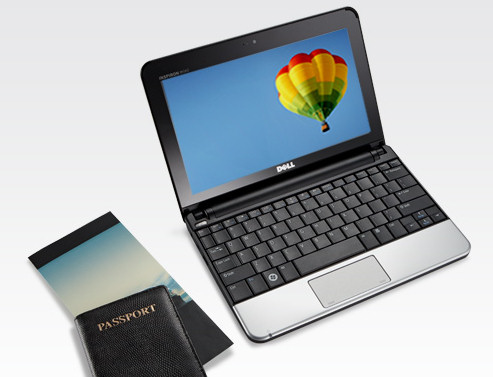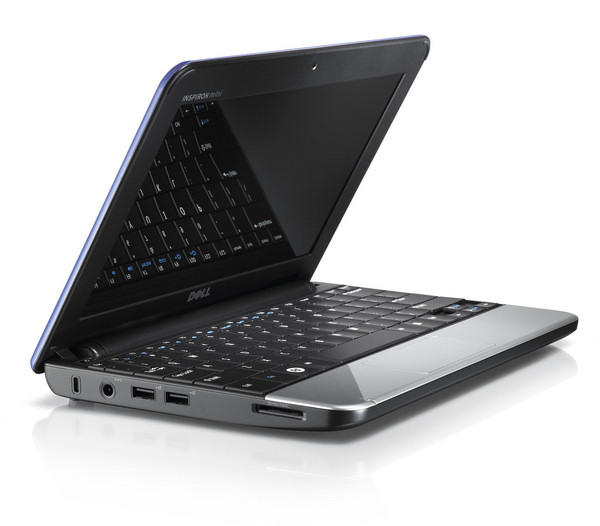By Scott M. Fulton, III, Betanews
This morning's ruling by the European Commission essentially finding Intel guilty of illegally tying rebates to exclusivity agreements, and other practices, is said to be a 500+ page document that as of now remains under seal. But the EC's characterization of its ruling today paints a picture of a dominant market manipulator that made exclusivity deals with at least five major global PC producers and Germany's largest PC retailer, making them offers they couldn't refuse that kept AMD from competing on an equal playing field.
"Not all rebates are a competition problem -- often they will lead to lower prices for consumers in the long term as well as the short," stated EC Commissioner for Competition Neelie Kroes in a press conference this morning in Brussels. "But the Intel rebates in this case were a problem because of the conditions that Intel attached to its rebates. Moreover, the Commission has examined closely whether an efficient competitor could have matched these rebates. These conditions, to buy less of AMD's products or to not buy them at all, prevented AMD from competing with Intel on the merits of its products. This removed the possibility of genuine choice for consumers and undermined innovation."
But in his response to reporters on behalf of his company early this afternoon, East Coast time, Intel CEO Paul Otellini suggested that the EC investigators essentially saw what they wanted to see, and by overlooking key facts, ignored the basic principles by which the computer product market operates in Europe. Without saying so in explicit language, and without naming any of Intel's own customers, Otellini adeptly countered that the business environment that leads to exclusivity deals was set up by those customers. Specifically, he did say that manufacturers auction off their sales, and the winner of those auctions effectively cancels out the loser, achieving exclusivity by default.
 "On occasion, we'll sell a combination of microprocessors and other chips at a price which is more favorable than if people bought the products independently," Otellini told reporters. "They have the right to buy the products independently, they have the right to mix-and-match products. But we believe that, relative to our CPU chipset pricing, there's no harm nor foul there. On the rebates, it's a simple volume discount kind of environment. We bid for business under a number of conditions, some of which are trying to meet competition. Our customers put business up for bids, we bid on it, AMD bids on it, and when you have a market which is principally supplied by two players, when one company wins, the other, by definition, will lose the business. And so I think this is really just a matter of competition at work, which is something I think we all want to see, versus something nefarious."
"On occasion, we'll sell a combination of microprocessors and other chips at a price which is more favorable than if people bought the products independently," Otellini told reporters. "They have the right to buy the products independently, they have the right to mix-and-match products. But we believe that, relative to our CPU chipset pricing, there's no harm nor foul there. On the rebates, it's a simple volume discount kind of environment. We bid for business under a number of conditions, some of which are trying to meet competition. Our customers put business up for bids, we bid on it, AMD bids on it, and when you have a market which is principally supplied by two players, when one company wins, the other, by definition, will lose the business. And so I think this is really just a matter of competition at work, which is something I think we all want to see, versus something nefarious."
Otellini later went on to describe customers -- presumably including Acer, Dell, HP, Lenovo (the PC market successor to IBM), and NEC -- as being particularly savvy market players who set up the conditions for the market in which AMD and Intel both play. By implication, he said that if any of these customers end up buying 80% or more of their CPUs from Intel, it's because it wanted to, and because that much of its business was up for bids.
Notice, the CEO commented, that none of the manufacturers named by the European Commission this morning were actually complainants in the case. One reporter asked, could that be because they were afraid to comment -- afraid to lose Intel's business? Otellini dismissed the whole idea as ridiculous, saying, "As to our customers, it's absurd to think that we would not sell product to someone who happened to not like a particular comment or term or whatever. This is a very competitive business, our customers are in most cases larger than Intel. Our customers have incredible buying power, and are excellent negotiators. So on the face of it, your scenario is absurd."
Otellini said he had not yet seen the 500+ page ruling handed down by the EC, so he was baffled at how it could have reached an amount for the fine of €1.06 billion. If that's supposed to represent harm to the consumer, he said, he can't figure out how that aligns. "It's hard to imagine how consumers were harmed in an industry which has lowered the cost of computing by a factor of 100 during the term of this case," he said. "And at the same time that happened, AMD claims that it's more vibrant than ever. So I don't see either evidence of consumer harm or competitor harm happening here."
Soon after Otellini's press conference, AMD Vice President for Advanced Marketing Pat Moorhead spoke with Betanews. We asked Moorhead, how would the European CPU market have been different had Intel not engaged in this conduct?
 "I believe that there would be an impact on innovation, I believe there could be an impact on price, and also an impact on people's choice," Moorhead told Betanews. But is there a realistic dollar value that AMD or anyone has been able to pin to this impact, we continued -- knowing that AMD's civil suit against Intel in a Delaware court is ongoing, and that AMD seeks damages there. "I actually think the EU put a dollar figure on it the best they can. Does that represent the exact damages to the consumer? I don't know," he responded. "But if you think about the fact that there's a 50% price delta between us and Intel, if you look at the fact that they've just been convicted of using monopolistic power, using bribery and coercive measures, to block us out, I think it's pretty safe to say that its impact on prices could have been pretty amazing.
"I believe that there would be an impact on innovation, I believe there could be an impact on price, and also an impact on people's choice," Moorhead told Betanews. But is there a realistic dollar value that AMD or anyone has been able to pin to this impact, we continued -- knowing that AMD's civil suit against Intel in a Delaware court is ongoing, and that AMD seeks damages there. "I actually think the EU put a dollar figure on it the best they can. Does that represent the exact damages to the consumer? I don't know," he responded. "But if you think about the fact that there's a 50% price delta between us and Intel, if you look at the fact that they've just been convicted of using monopolistic power, using bribery and coercive measures, to block us out, I think it's pretty safe to say that its impact on prices could have been pretty amazing.
"I think it would be very different, in terms of the amount of innovation, the amount of money that AMD could have reinvested into its R&D," continued AMD's Moorhead. "Now, OEMs set the pricing for the end systems, but if you look at the 50% differential between our products and Intel's microprocessors, it's not too difficult for me to assume that prices would be different as well. And there has been a lot of innovation, and I think there is no artificial barrier of how far innovation can go. If we can all agree that, without competition, there isn't innovation and there are higher prices, you put that monopolistic practice in there, and it's not going to go as fast as it would have gone."
Next: How much change will the PC market actually see?
How much change will the PC market actually see?
We presented Moorhead and AMD Communications Director John Taylor with Otellini's statement of just minutes earlier, painting the CPU market as being driven by manufacturers whose loyalties have price tags that dominant players, by the EC's definition, are better able to satiate than others. While both declined to knock down the Intel CEO's illustrations entirely, Moorhead asserted there's a big difference between volume pricing -- which Otellini said was the only dynamic in play during the relevant period of the EC's investigation -- and exclusionary pricing, which gives customers huge price breaks in exchange for exclusivity. However it was that these deals were entered into, he told us, the EC determined that they were in fact made, and that Intel is in fact responsible.
"Who knows how far prices would have fallen had Intel played fairly?" Moorhead asked rhetorically. He went on to cite the count of the EC ruling where HP declined a majority of AMD's offer of free CPUs, in order not to interfere with its existing deal with Intel. "You can't get cheaper than free," he said.
At one point during today's Intel press conference, a reporter asked Otellini whether he felt consumers would be less inclined to purchase Intel-based products. "It's hard to imagine that the dynamics of competition would change," he responded. "Most customers buy from both suppliers today. Most customers buy more or less from each supplier depending on the quality of the products, the competitiveness of the products, and the pricing. That dynamic hasn't changed in my career at Intel, which is 35 years, and I don't expect it to change. I don't think a customer is going to put him- or herself at a disadvantage by buying inferior or more costly products just to try to walk lines that maybe are artificial."
AMD's Pat Moorhead, though, believes that Intel is now permanently marked. Like an ex-convict, it now has to check in with EU authorities periodically to have its behavior monitored. And that stain may extend to its business deals in the US and elsewhere, he said: "If someone steals from his neighbor, it still makes that person a thief, even though he didn't steal from your house."
From this point, AMD's John Taylor believes that customer and even press perception of AMD will be fairer and more even-handed. "It's not AMD that has to change," he repeated a few times, especially after we cited Otellini more times than he might have liked. "There is [now] a virtuous cycle of fair competition and innovation. [In its absence,] it doesn't matter how hard AMD innovates; the judges will score half-a-point for every blow AMD lands and two points for every blow Intel lands. [Intel's behavior] shuts down that virtuous cycle, stands on AMD's windpipe, and caps that reward for innovation that AMD would receive, that could have been poured back into R&D."
Expecting the opposite opinion from Otellini, one reporter asked him today whether he expected PC prices could rise as a result of the ruling, partly from Intel passing on the costs of the fine (payable within 90 days of the ruling) to its customers. Repeating his notion that the fine is not officially a "cost" per se that can be transferred to consumer prices, the CEO responded, "I think they'll absolutely see a difference in the price of PCs. Certainly...prices will continue to go down. Quality goes up, performance goes up. There's nothing in this ruling that reverses Moore's law."
Copyright Betanews, Inc. 2009





 Rolled out last night at a press event in New York City, the Mini 10v "companion netbook" offers some but not all of the same features as the slightly pricier Inspiron Mini 10 "media netbook," according to DK Ray, product marketing manager.
Rolled out last night at a press event in New York City, the Mini 10v "companion netbook" offers some but not all of the same features as the slightly pricier Inspiron Mini 10 "media netbook," according to DK Ray, product marketing manager. 



 "On occasion, we'll sell a combination of microprocessors and other chips at a price which is more favorable than if people bought the products independently," Otellini told reporters. "They have the right to buy the products independently, they have the right to mix-and-match products. But we believe that, relative to our CPU chipset pricing, there's no harm nor foul there. On the rebates, it's a simple volume discount kind of environment. We bid for business under a number of conditions, some of which are trying to meet competition. Our customers put business up for bids, we bid on it, AMD bids on it, and when you have a market which is principally supplied by two players, when one company wins, the other, by definition, will lose the business. And so I think this is really just a matter of competition at work, which is something I think we all want to see, versus something nefarious."
"On occasion, we'll sell a combination of microprocessors and other chips at a price which is more favorable than if people bought the products independently," Otellini told reporters. "They have the right to buy the products independently, they have the right to mix-and-match products. But we believe that, relative to our CPU chipset pricing, there's no harm nor foul there. On the rebates, it's a simple volume discount kind of environment. We bid for business under a number of conditions, some of which are trying to meet competition. Our customers put business up for bids, we bid on it, AMD bids on it, and when you have a market which is principally supplied by two players, when one company wins, the other, by definition, will lose the business. And so I think this is really just a matter of competition at work, which is something I think we all want to see, versus something nefarious." "I believe that there would be an impact on innovation, I believe there could be an impact on price, and also an impact on people's choice," Moorhead told Betanews. But is there a realistic dollar value that AMD or anyone has been able to pin to this impact, we continued -- knowing that AMD's civil suit against Intel in a Delaware court is ongoing, and that AMD seeks damages there. "I actually think the EU put a dollar figure on it the best they can. Does that represent the exact damages to the consumer? I don't know," he responded. "But if you think about the fact that there's a 50% price delta between us and Intel, if you look at the fact that they've just been convicted of using monopolistic power, using bribery and coercive measures, to block us out, I think it's pretty safe to say that its impact on prices could have been pretty amazing.
"I believe that there would be an impact on innovation, I believe there could be an impact on price, and also an impact on people's choice," Moorhead told Betanews. But is there a realistic dollar value that AMD or anyone has been able to pin to this impact, we continued -- knowing that AMD's civil suit against Intel in a Delaware court is ongoing, and that AMD seeks damages there. "I actually think the EU put a dollar figure on it the best they can. Does that represent the exact damages to the consumer? I don't know," he responded. "But if you think about the fact that there's a 50% price delta between us and Intel, if you look at the fact that they've just been convicted of using monopolistic power, using bribery and coercive measures, to block us out, I think it's pretty safe to say that its impact on prices could have been pretty amazing.



 The highly controversial French Création et Internet law, which gives ISPs there the power to block access to the Internet for anyone accused three times of illegal file-sharing, is on a collision course with the EU after winning approval in a
The highly controversial French Création et Internet law, which gives ISPs there the power to block access to the Internet for anyone accused three times of illegal file-sharing, is on a collision course with the EU after winning approval in a 
